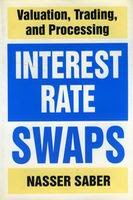In 1999, Nasser wrote in Vol. 1:
Theory is to explain what is happening, i.e., what is changing. The theory can explain the change only if it can show the cause and direction of the change and the point to which it must lead. In that regard, theory delivers us from submissive acceptance of events just because they occur and allows us to interpret them within the body of a logically constructed system and, if need be, take action to influence them.Has the theory of speculative capital lived to that expectation? Let us look at a few disparate cases.
(1)
Nasser in the same volume:Speculative capital is not bound to any one market or place. Rather, it is constantly on the lookout for profitable opportunities wherever it can find them. Upon finding such opportunities, it enters into these markets and, through arbitrage, “links” them together ... The linkage knows no limits in terms of markets. It can target two similar or approximately similar markets in the same country, two separate markets within the same country, two similar markets in two different countries or different markets in different countries.From the Financial Times of Feb 20, 2013, under the heading, In search of fast bucks:
The most elementary form of arbitrage linkage of two similar markets within a country is the one we visited earlier: the price of a stock (such as IBM) being different in the New York and the Pacific Stock Exchanges. ..The linkage of equities, fixed income and currency markets is less simple [and comes later].
The prospect of the speed traders expanding their presence across global markets, linking numerous asset classes ever tighter, poses new challenges to traditional investors, companies – and regulators...The presence of high-frequency trading in the equities market is “waned” because that market is arbitraged away. Speculative capital, Nasser pointed out, is self-destructive. It eliminates opportunities that give rise to it.
High-frequency trading in assets such as futures and fixed income has picked up in the past four years just as its presence in the US equities has waned. The gains are most visible in foreign exchange, where the global market share of high-frequency trading has soared to 40 per cent up from just a quarter in three years.
(2)
Nasser on his blog on January 22, 2012 about the goings on in Hungary under Viktor Orban:
If you are not Hungarian and ordinarily do not follow the affairs of the country, I say keep Viktor Orban’s name in the back of your mind. My guess is that you will see it again – and never in a positive light. In fact, that is how you will only hear of his name – until you hear of it no more.From the Financial Times, this past Tuesday, under the heading Hungary accused of power grab
Hungary’s government is being accused of renewed attempts to monopolise power as it tries to reinstate measure from its new constitution last year that European authorities and its own top court had earlier forced it to drop.So a country’s parliament passing a bill is considered a ‘power grab’ by the Financial Times and the Princeton critic whose language is decidedly neocon. The same paper reported the next day:
In what critics say is a significant reversal, Hungary’s parliament is expected today to pass amendment that will restore many of the most contentious elements of the new basic law. “This [document] is a toxic waste dump of bad constitutional ideas,” said … an expert on Hungarian constitution at Princeton University.
Mr Orabn has found blaming foreign banks and EU “interference” resonate politically. “In some elements it’s just popular [with voters],” says [the] director of ... a Budapest think-tank.
(3)
Nasser on “jobless recovery” on October 8, 2009
In the phrase “jobless recovery”, the news pertaining to the people is grim; there are no jobs to be had. Yet it contains “recovery”. So, what is it that is being recovered? The answer is: the agreeable rate of return of capital. The “data” measures the pulse and performance of capital, which the university professors study and comment about without ever understanding the larger issue surrounding it.From the New York Times, this past Monday, under the title Recovery in U.S. Lifting Profits, Not Adding Jobs
With the Dow Jones industrial average flirting with a record high, the split between American workers and the companies that employ them is widening...That gulf helps explain why stock markets are thriving even as the economy is barely growing and unemployment remains stubbornly high....“There hasn’t been a period in the last 50 years where these trends have been so pronounced,” [an economist] said.
(4)
How much money you are earning or will earn in the future does not depend on what you spend today. Yet, the president of the ECB links the two. Why? Because “fiscal soundness” he mentions is the code word for reducing labor costs by cutting their pay and pensions. That is what the fight is all about: to bring down the labor costs to at least temporarily boost the growth, i.e., increase the rate of return of capital, whose consistent decline in the past decade remains a matter of serious concern to the planners of the European Union.A professor of history at Columbia University opining in the New York Times on March 1:
So, from today’s perspective, the 1950 and 1960s look like a golden age. Its achievement now looks in danger of being undone. For it is not written in stone that Europe will always be identified in the minds of its citizens with growth and democracy.
(5)
Nasser on democracy, Nov 20, 2011:
Democracy is the name of the form of the government created by capital.Financial Times, Feb 26, 2013:
Mr Monti ... reforms won the approval of the markets – but not of the voters.Approval of the market but not of the voters.
The voters will soon find out who is the boss in a democracy.
Have a good week!




